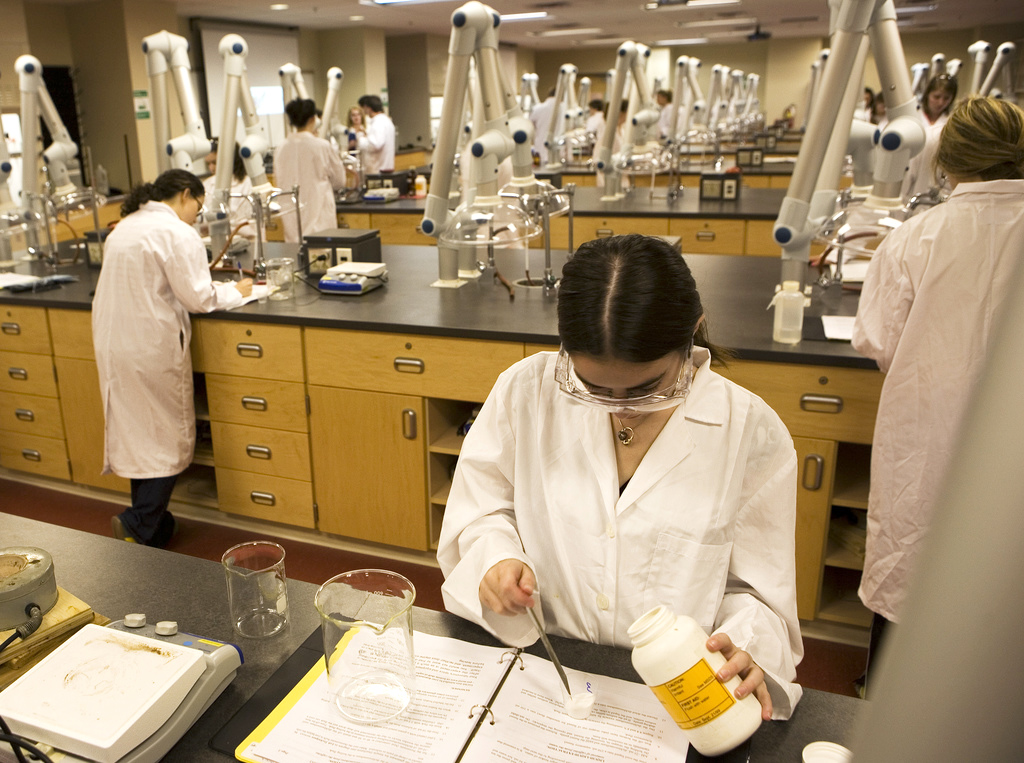The National Science Foundation awarded a $3.45 million grant to the University of Maryland to expand research as part of the NSF’s innovation program, said university Associate Vice President for Innovation and Entrepreneurship, Dean Chang.
The grant, part of the NSF’s I-Corps Nodes program, is intended to promote the growth of research and entrepreneurship so that it may be applied on a larger scale, said Chang, the grant’s recipient. The grant went into effect on Sept. 15 and should run through Aug. 31, 2021, Chang said.
“[The NSF would] like to see more of the research that they fund … turn into things that will actually impact the world, impact society in some way,” Chang said, and added “that’s what the program is really about.”
To do that, this university will work with other schools in the region — including Johns Hopkins University, Virginia Tech and George Washington University — to expand the grant’s outreach, Chang said.
Lydia McClure, program director for NSF’s Innovation Corps, said the main goal of I-Corps is “to facilitate the translation of products, ideas [and] technologies out of research labs” and into real-world applications.
The program began in 2011, but this university first received a three-year grant from the innovation corps in 2013.
On campus, Chang teaches I-Corps methods that help researchers find problems that could have larger implications. Some of these entrepreneurship methods have been applied to Scholarship in Practice General Education courses, as well as the Capstone requirement for the bio-engineering major, Chang said.
“A lot of people are getting different pieces in the I-Corps training without even knowing that that’s what they’re getting … with this new grant we want to accelerate that to include it in even more classes,” Chang said.
In one bio-engineering capstone class, students developed a device that could measure a pulse using ultrasound technology after they received I-Corps training in class. The training allowed them to interview Emergency Medical Technicians and other medical professionals to determine a need, budget costs, and what insurance would cover, Chang said.
In this case, the students learned that it’s difficult for EMTs to find a pulse quickly, and they sought to remedy that through their device.
“That’s the basis of I-Corps, it’s that going out and talking to people out in the field,” Chang said.
Edmund Pendleton, director of Mtech venture accelerator program, is the director of the DC-area I-corps node, which means he helps run regional operations between this university, Johns Hopkins University, George Washington University and Virginia Tech. This university is one of seven universities in the country that leads these collaborations.
Pendleton teaches the I-Corps skill set primarily to faculty and graduate student researchers to “assess a problem or need in the market … and see whether or not there are innovations that have the potential to help,” he said.
Through this, Pendleton said researchers determine whether their idea has work that needs to be done, has potential and can continue with the I-Corps skill set going forward.
“For us it’s really teaching a set of skills they can use over and over again as they progress through their careers,” Pendleton said.
The research done at this university doesn’t always make it to the market, Pendleton said, because students and faculty don’t know how to begin a startup or don’t know how to license the technology for it. The I-Corps program essentially makes those things more clear, he said.
“One of the third things we try to do is really inspire the next generation of innovators and possibly startup founders,” Pendleton said. “But they don’t have to be startup founders. We really want to see the graduate students get excited about innovation in general.”
CORRECTION: Due to a reporting error, a previous version of this story incorrectly stated that the grant would go into effect in 2017. The grant went into effect Sept. 15. This story has been updated.



